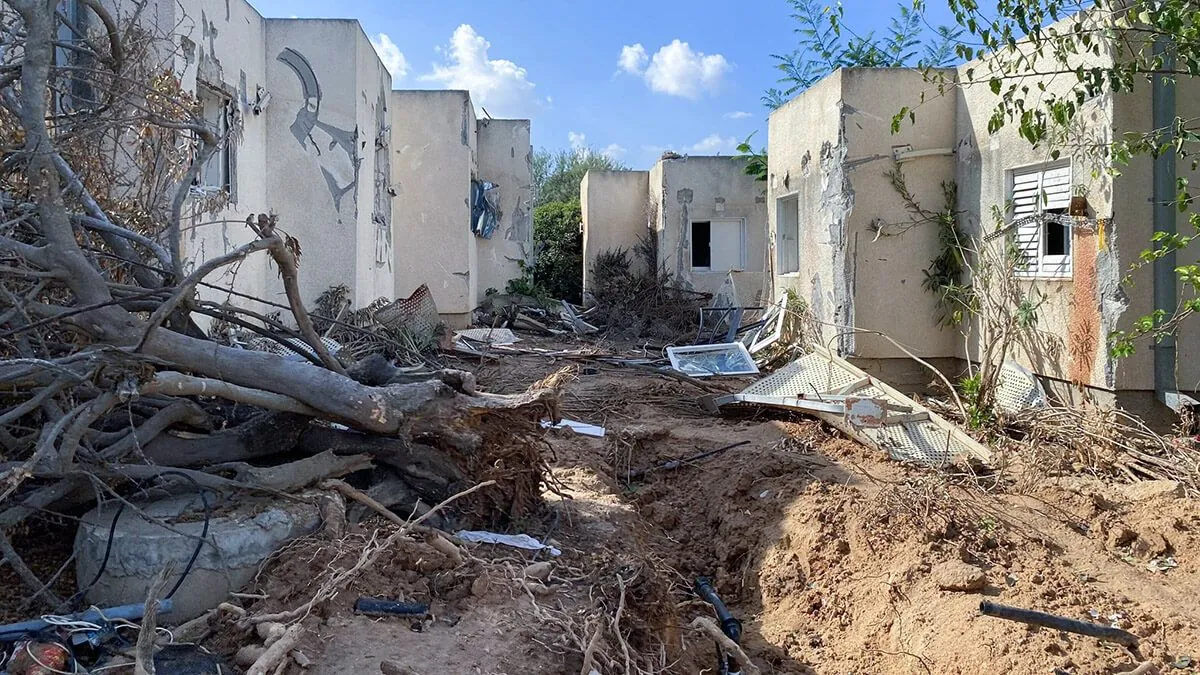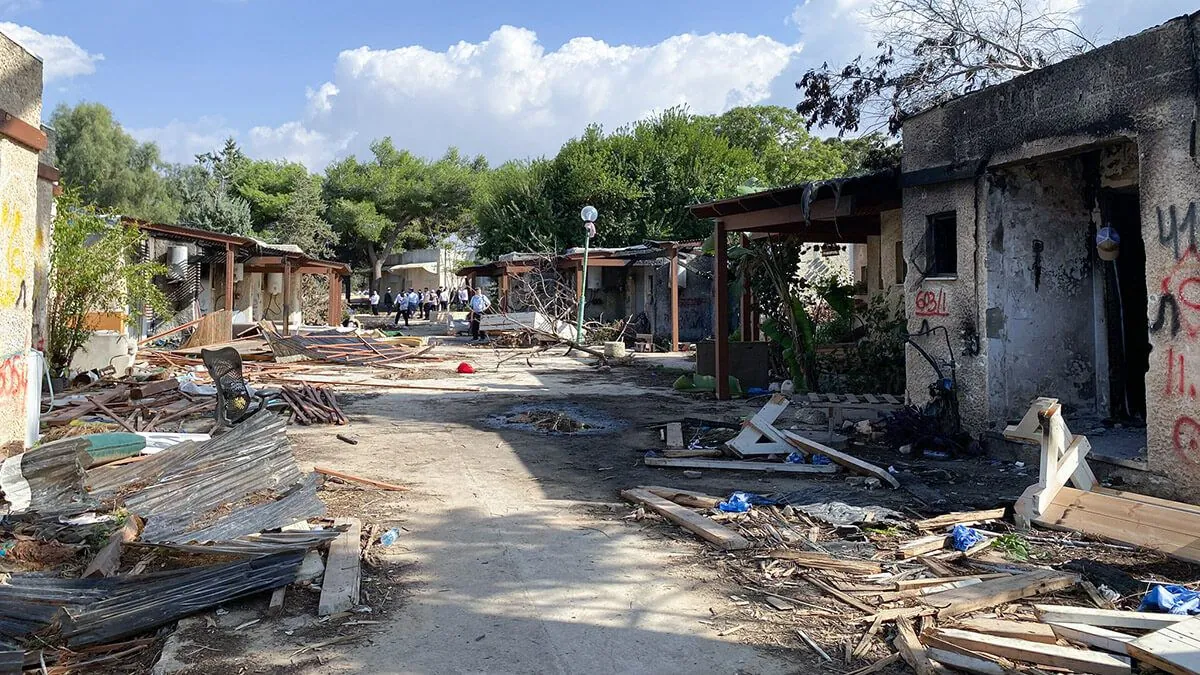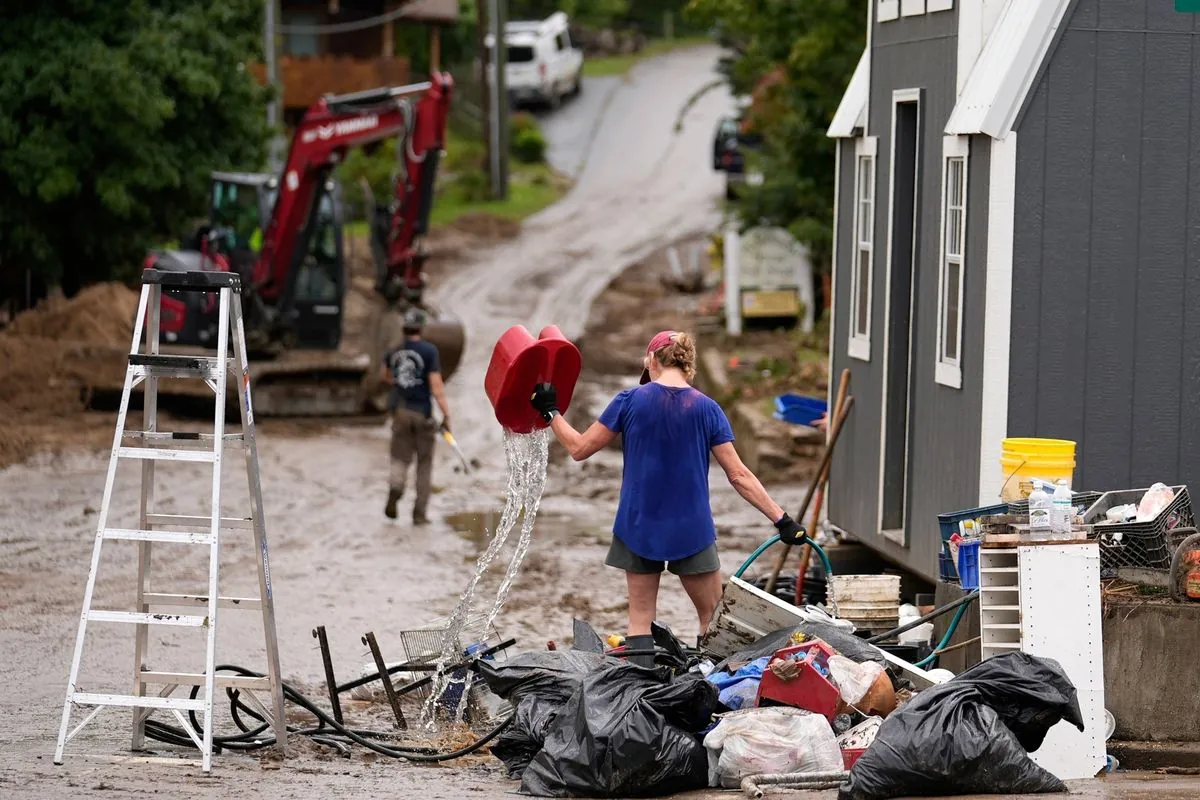Kfar Aza Residents Grapple with Trauma One Year After Hamas Attack
One year after the Hamas attack, Kfar Aza residents struggle with returning home. The community faces challenges of rebuilding, safety concerns, and questions about the future of Israeli-Palestinian relations.

One year has passed since the devastating Hamas attack on Kibbutz Kfar Aza, leaving its residents grappling with trauma and uncertainty about their future. The assault, which occurred on October 7, 2023, resulted in the deaths of 1,200 people and the abduction of approximately 250 others, marking a tragic chapter in Israeli history.
The aftermath of the attack has left a profound impact on the community of Kfar Aza, one of many kibbutzim in Israel's Negev desert region. These collective communities, typically based on agriculture, have been a cornerstone of Israeli society since the country's founding. However, the recent violence has shaken the foundations of this way of life.
Liora Eilon, a 71-year-old resident, shared her heartbreaking experience of losing her son, Tal Eilon, during the attack. The 46-year-old commander of the civilian defense squad was among the victims. Liora now resides in a college dormitory in northern Israel, uncertain if she will ever return to her former home.
"How can I trust the government who abandoned me here, who betrayed me, promised me that my family was safe here?"
The attack has raised serious questions about the Israeli government's ability to protect its citizens, particularly those living near the Gaza Strip. The Gaza-Israel barrier, constructed to enhance security, proved ineffective in preventing the Hamas incursion.

Only about 50 of Kfar Aza's 1,000 residents have returned, living amidst the ruins of their once-thriving community. The Israeli government has pledged to rebuild, but many residents express doubts about the feasibility and desirability of returning to a place so deeply scarred by violence.
The ongoing hostage situation further complicates the recovery process. Simona Steinbrecher, whose daughter Doron is among the 66 Israelis still held captive, feels trapped in time. "Without Doron, it's still the seventh of October," she stated, highlighting the emotional toll on families of the abducted.
Many residents criticize the military's response to the attack, questioning why it took so long for forces to arrive and regain control. This has led to calls for accountability and a thorough investigation into the events of that day.
The attack on Kfar Aza is reminiscent of past conflicts in the region, such as the 1948 Egyptian attack on Be'erot Yitzhak kibbutz during Israel's War of Independence. These historical parallels underscore the ongoing nature of the Israeli-Palestinian conflict, which has roots dating back to the late 19th century.
As Israel approaches the one-year anniversary of the attack, the community of Kfar Aza faces difficult decisions about its future. Some residents, like Zohar Shpack, question whether living in what essentially becomes a memorial is feasible or desirable.
The events at Kfar Aza have reignited debates about the broader Israeli-Palestinian conflict and the prospects for peace. Some residents, including Liora Eilon, express hope for a future where Israelis and Palestinians can coexist peacefully. However, achieving this goal remains a significant challenge, given the complex history of the region and ongoing tensions.
As Israel continues to grapple with the aftermath of the October 7 attack, the fate of communities like Kfar Aza remains uncertain. The resilience of its residents, coupled with the support of the wider Israeli society, will be crucial in determining the path forward for this traumatized community.


































